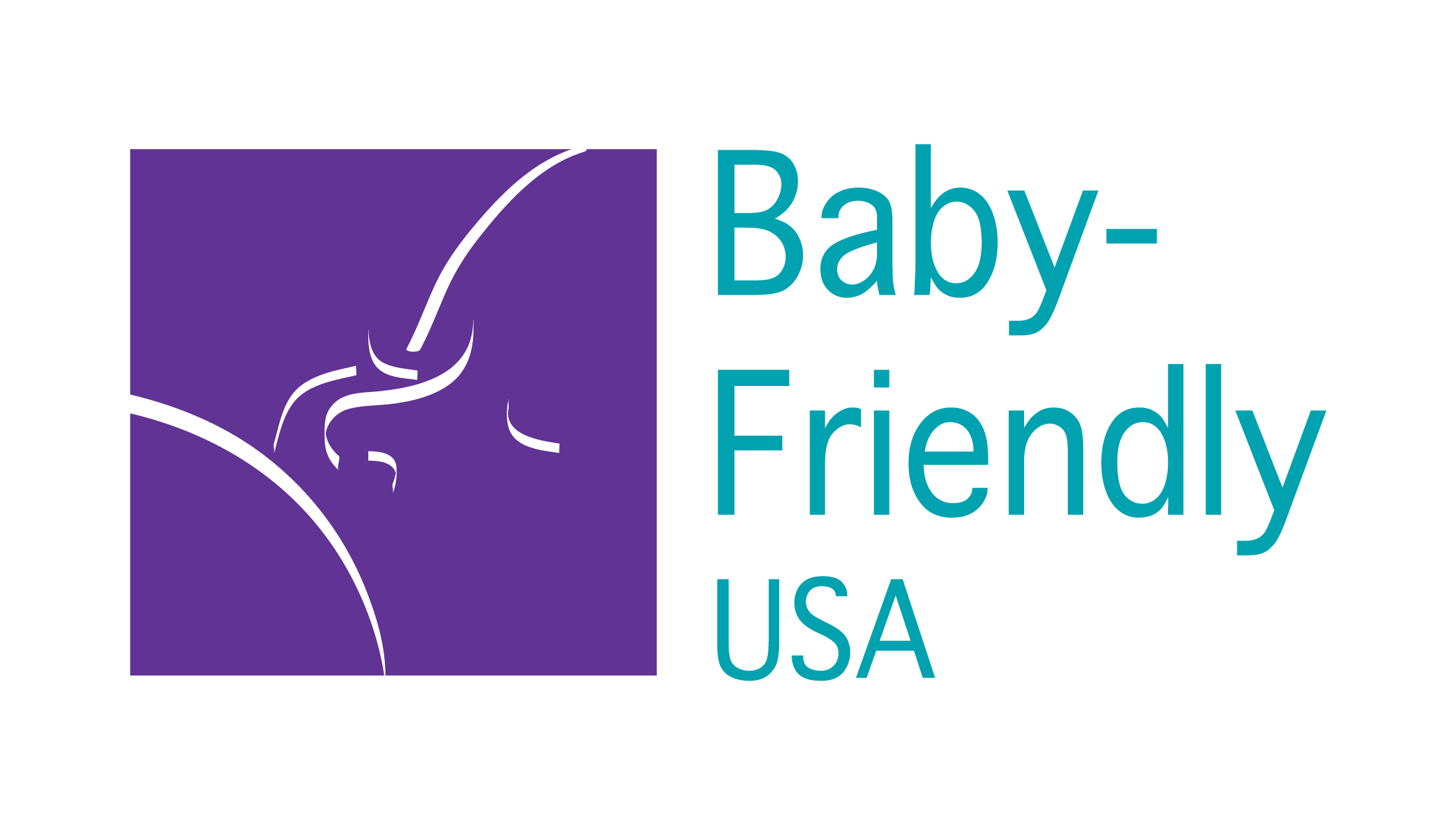Caring for Your Newborn
Learning to care for your newborn is a rewarding and challenging experience. We want to make sure you get the support you need to confidently care for your baby once you leave the hospital.
We encourage you to ask questions and use our resources to prepare you and your baby for your new life together.
Rooming-in
In most cases, your newborn is with you during your entire hospital stay. This gives you the opportunity to bond together and learn how to feed, hold and care for your baby.
Your baby is seen daily during your stay by a newborn hospitalist, pediatrician or pediatric nurse practitioner who specializes in the care of healthy newborns in the hospital setting. They examine your baby and talk to you about all the things you and your baby are learning.
If your baby is premature or needs specialized care, both of our hospitals offer NICU care.
Skin-to-Skin Care
There are many benefits to keeping your baby close to you, especially if you're breastfeeding. We encourage you to hold your newborn baby naked (except for a diaper) on your own skin, with a blanket covering you both, during your awake and alert times.
Babies who are frequently held skin-to-skin:
- Are more likely to latch onto the breast to breastfeed easily
- Have more stable and normal skin temperature, heart rate and blood pressure
- Have better blood sugar
- Are less likely to cry
Breastfeeding Support in the Hospital
We are nationally known for our breastfeeding support. Both our hospitals are designated Baby-Friendly for upholding the highest standards of infant feeding care by promoting and supporting breastfeeding.
Health Screenings
California state law requires newborns get two health screenings before leaving the hospital. The purpose of these screenings is to provide your baby with any needed treatment or services. Your baby will stay with you during these screenings.
- Blood testing: We take a heel prick to get a few drops of your baby's blood to test for some rare disorders that are not immediately apparent after delivery. Screening identifies most babies born with these disorders, so treatment can start right away.
- Hearing screening: We do a hearing screening to help identify hearing loss in newborns and get them earlier services. The screening takes only a few minutes while your baby sleeps. We play soft sounds through earphones made specifically for babies and measure their response to the sounds.
If your baby requires additional testing in another area of the hospital, you or your support person are welcome to accompany your baby.
Discharge and Follow-Up Care
The average hospital stay is one to two days for a vaginal delivery and three days for C-section delivery. With arrangements for follow-up care and good support at home, you may be discharged 24 hours after birth, but usually no sooner.
Before you leave the hospital, we'll ask your support person to bring your baby's car seat to your room.
The newborn health team will communicate with your baby's medical provider and help you arrange for infant care after discharge.
On the day you go home, you'll receive written discharge instructions for making follow-up appointments.

